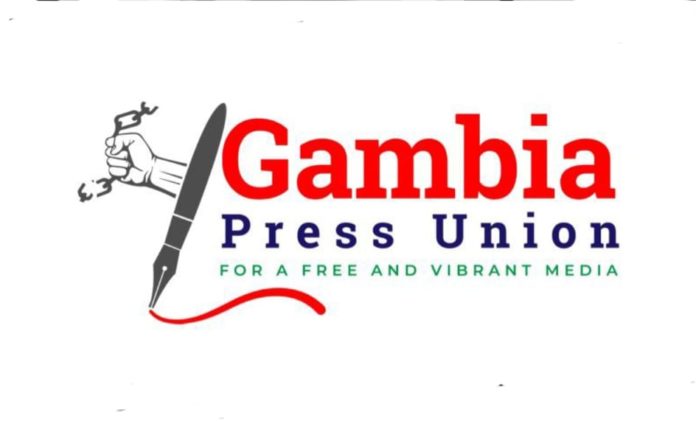By Alieu Jallow
The Gambia Press Union (GPU) has expressed concerns over President Adama Barrow’s threat of legal action against The Voice newspaper.
The newspaper published a story on Monday, September 23, claiming that the president had selected business tycoon Muhammed Jah as his successor as part of an exit plan. However, the president’s legal team denied the claims on Wednesday and warned that they would sue the newspaper if it did not retract the story.
In a Facebook post, the Gambia Press Union (GPU) stated: “The GPU is concerned that the President Adama Barrow is considering taking legal action against The Voice newspaper over a story it ran on 23rd September which claims President Barrow has chosen a successor as part of an exit plan.”
The union stands firmly with the paper, saying, “The story upholds the principles of balance and fairness in news reporting as provided for in the Cherno Jallow Charter of Ethics for Journalists (the conduct for journalists) by providing a platform to two senior NPP officials to reply to the claims.”
“We consider the threat of legal action as unnecessary and a threat to press freedom. We also reiterate our call for president Barrow to uphold his promises and demonstrate tolerance for press freedom, and urge him to drop the idea of a suit against The Voice Newspaper immediately,” the union added.
GPU Secretary General Modou S. Joof described the recent developments as a regression to times when courts were wielded as a weapon against the media. Consequently, legal threats to journalists continue to drive them towards self-censorship, out of fear of the costs associated with lawsuits, such as those for defamation.
“It is obviously a concern to see senior public officials using legal threats over news media stories about them which has the potential of shielding them from being held accountable,” he said.
The Gambia, a once troubled nation regarding press freedom, punctuated by the oppressive regime of former President Yahya Jammeh, who was notorious for silencing critics through violence and legal manipulations has seen significant strides towards democracy in recent years, however, concerns have begun to suggest that challenges are far from resolved following the President’s legal notice against The Voice newspaper.
Following the change of regime in 2016 and the ushering of newly found democracy, the Gambia Press GPU established the Media Council of The Gambia (MCG) in December 2018 as an independent self-regulatory mechanism for addressing public complaints against the conduct of journalists.
“The idea is that members of the public (public officials included) who feel offended or unfairly treated in news stories that violate the code of conduct for journalists can take their cases to the Media Council instead of resorting to expensive lawsuits that are likely to diminish the media’s ability to play its fundamental role of holding the government and its officials to account,” GPU secretary general stated.
With few media houses or journalists having received warnings or legal notices following their reporting on sensitive issues serious questions about the willingness of officials to engage in a transparent and accountable governance model thus the GPU has emphasised that the Media Council is an alternative dispute resolution mechanism that regulates editorial content across all media platforms (print, radio, television and online) by monitoring compliance with, and implementing the industry-wide code of conduct that establishes ethical standards for journalism in The Gambia.
Additionally, GPU Secretary General Modou Joof stressed that as much as the GPU continues to advocate for the rights of media practitioners, he has called for media to be ethical and diligent in their work.
“That said, media houses should be diligent in their work and not wilfully damage anyone’s reputation by ensuring that meticulous measures are taken to provide proof of wrong doing especially in news stories alleging corrupt practices, and give whoever is accused of wrongdoing their right of reply before such stories are published. Journalists should avoid running stories with unnamed sources without proof and use such tips to dig deeper into the allegations to unearth wrongdoing involving government officials,” Joof said.




